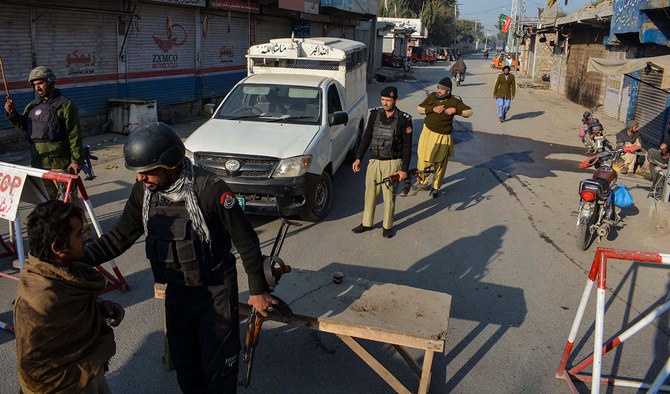ISLAMABAD: Former prime minister Imran Khan on Sunday blamed the government’s existing counter-terrorism policy for a rise in militancy across the country, less than a week after the government said it had a “zero-tolerance” policy for militants.
The South Asian country has been grappling with a surge in militancy, especially after the banned Tehreek-e-Taliban Pakistan (TTP), a separate group allied with the Afghan Taliban, ended a ceasefire agreement with the Shehbaz Sharif-led coalition government in November and ordered its fighters to carry out attacks across Pakistan.
Pakistan witnessed a sharp increase in militant attacks and related deaths in 2022, reveal data compiled by local research organizations, as radical outfits intensified their activities in the remote regions of Balochistan and Khyber Pakhtunkhwa provinces.
In light of the situation, the government's top national security body decided on January 2 that the country would continue its “war against terrorism,” which will be led by the center and the provincial governments as per the country’s national internal security policy.
But despite the government’s assurances to revamp its counterterrorism efforts, Khan on Sunday criticized the existing policy and said it was “non-cohesive.”
“With a complete vacuum of a cohesive counter-terrorism policy & a bizarre intel focus on manufacturing doctored audios & videos, we are seeing a dangerous rise in terrorism with our security personnel being specific targets,” Khan said on Twitter.
“We strongly condemn these terrorist acts & threats.”
Khan's statement came a day after militants opened fire on a security van killing a policeman in northwest Pakistan, a region bordering Afghanistan.
Nobody immediately claimed responsibility for the attack. However, such incidents have intensified after the TTP ended its cease-fire with the government in Islamabad.
Many TTP leaders and fighters have found sanctuary and even been living openly in Afghanistan since the Taliban takeover, which has also emboldened the TTP.
Last month, 33 TTP fighters detained at Bannu’s Counter Terrorism Department seized the compound and took staff hostage. The Pakistani army's response killed 25 militants.
Khan, who was ousted in a parliamentary vote of no-confidence in April last year, blames the United States, the coalition set-up, and the country’s military for his removal. He is now pushing for early elections in the country and has threatened to dissolve two provincial assemblies controlled by his party.
Amid his political tug-of-war with the government, several controversial audio clips, allegedly featuring Khan and others close to him, have surfaced online. The ex-premier has denied the authenticity of the clips, saying they were “manufactured” to discredit him.
















